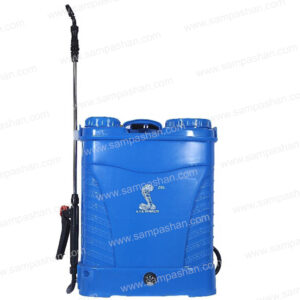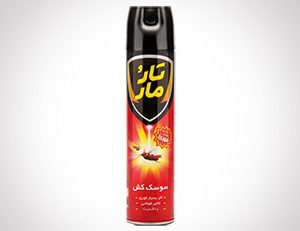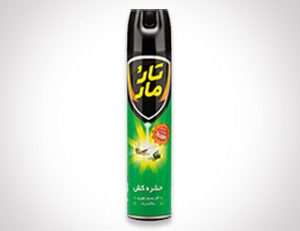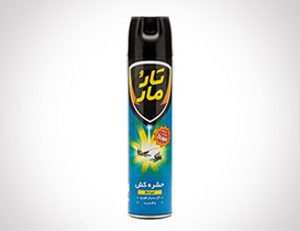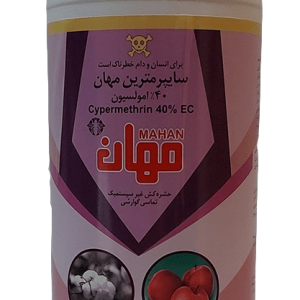سم حشرهکش | خرید قویترین سم حشره کش، گیاهی و ارگانیک
سم حشره کش مؤثرترین راه برای از بین بردن انواع حشرات مزاحم در منازل، خوابگاهها، شرکتها و کارخانههاست. در این دستهبندی، مجموعهای از قویترین سمهای حشرهکش از برندهای معتبر مانند Strong، Home Pest Control، Awesome و همچنین سموم گیاهی (ارگانیک) قوی ارائه شدهاند تا برای هر نوع نیاز، بهترین انتخاب را داشته باشید.
📞 مشاوره و خرید فوری: 09192004096
سم حشرهکش شامل چه حشراتی میشود؟
سمهای این دسته برای کنترل و ریشهکن کردن طیف گستردهای از حشرات طراحی شدهاند، از جمله:
- 🪳 سوسک ریز و سوسک درشت
- 🛏 ساس
- 🐜 مورچه
- 🪰 مگس
- 🦟 پشه
- 🪲 حشرات خزنده
- 🐞 حشرات پروازی
✔ مناسب استفاده خانگی، نیمهحرفهای و کاملاً حرفهای
برندهای موجود در دسته سم حشرهکش
در این دسته میتوانید از بین بهترین برندها انتخاب کنید:
1. سم حشرهکش Strong
- بسیار قوی و حرفهای
- از بین برنده همه حشرات
- مناسب آلودگیهای شدید
2. سم حشرهکش Home Pest Control
- متعادل، مؤثر و ایمن
- مناسب مصرف خانگی و محیطهای بسته
3. سم حشرهکش Awesome
- اثرگذاری سریع
- مناسب حشرات خزنده و پروازی
4. سایر برندهای تخصصی
- مورد استفاده کارشناسان سمپاشی
- تستشده در پروژههای واقعی
سموم گیاهی (ارگانیک) حشرهکش قوی
برای افرادی که به دنبال گزینههای کمخطرتر و دوستدار محیط زیست هستند، سموم گیاهی و ارگانیک قوی نیز در این دسته موجود است.
ویژگیهای سم حشرهکش گیاهی:
- 🌱 پایه گیاهی و طبیعی
- 🛡 ایمنتر برای انسان و حیوانات خانگی
- 🔥 اثرگذاری مناسب روی بسیاری از حشرات
- 🏠 مناسب منازل، مهدکودکها و محیطهای حساس
❗ با وجود گیاهی بودن، این سموم قدرت بالایی در کنترل حشرات دارند.
سم حشره کش مناسب چه مکانهایی است؟
سم حشره کش
- 🏠 منازل و آپارتمانها
- 🛏 خوابگاهها
- 🏢 شرکتها و ادارات
- 🏭 کارخانهها و انبارها
- 🍽 رستورانها و مراکز غذایی
آیا سمهای حشرهکش این دسته تضمینی هستند؟
بله ✔
تمام محصولات سم حشرهکش سمپاشان از نظر کیفیت، اثرگذاری و ایمنی بررسی شدهاند و در صورت مصرف صحیح، نتیجه مؤثر و ماندگار خواهند داشت.
📌 بند ثابت خدمات تخصصی سمپاشی سمپاشان
در صورتی که علاوه بر خرید سم، نیاز به خدمات سمپاشی حرفهای حشرات دارید، میتوانید با کارشناسان مجرب سمپاشان با استفاده از قویترین سموم دارای مجوز وزارت بهداشت و ارائه ضمانتنامه کتبی یکساله برای منازل، خوابگاهها، کارخانهها و شرکتها تماس بگیرید.
❓ سوالات متداول سم حشرهکش (FAQ)
کدام برند سم حشرهکش قویتر است؟
برای آلودگیهای شدید، Strong انتخاب حرفهایهاست؛ برای مصرف خانگی، Home Pest Control و Awesome گزینههای عالی هستند.
سم حشرهکش گیاهی واقعاً مؤثر است؟
بله، سموم گیاهی قوی موجود در این دسته، روی بسیاری از حشرات اثرگذاری مناسبی دارند.
آیا این سمها برای خانه خطر دارند؟
در صورت مصرف طبق دستور، ایمن و استاندارد هستند.

